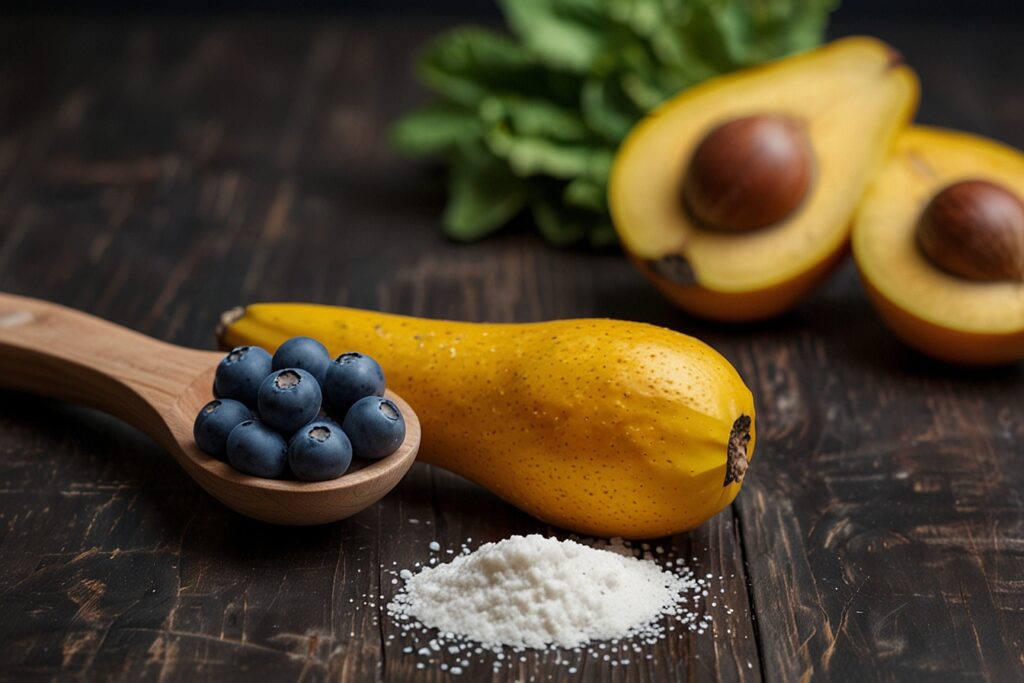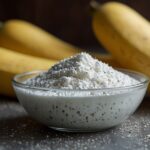Potassium is an essential mineral that plays a vital role in several bodily functions, including muscle contraction, nerve signaling, and maintaining fluid balance. In this article, we’ll explore simple and effective ways to increase your potassium intake through your daily routine.
What is Potassium and Why is It Important?
Potassium is a mineral that helps maintain proper electrolyte balance in your body, supporting muscle and nerve function. It also helps regulate fluid balance, which is critical for the normal function of cells and organs. Insufficient potassium levels can lead to muscle cramps, (grip lock check this article)fatigue, and even more severe health issues like high blood pressure and kidney stones.
How Much Potassium Do You Need?
The recommended daily intake (RDI) of potassium for most adults is about 2,500 to 3,000 mg. However, this can vary depending on factors like age, gender, and health conditions. Most people don’t get enough potassium, so it’s essential to be mindful of your intake.
Simple Ways to Add Potassium to Your Daily Routine
If you want to make sure you’re getting enough potassium every day, try implementing these easy tips into your routine.
1. Eat Potassium-Rich Foods
One of the most natural ways to increase potassium in your diet is by including foods that are high in this mineral. Consider adding these foods to your meals:
- Bananas: A classic potassium source, with about 400-450 mg per banana.
- Avocados: A nutrient-packed fruit, offering about 700 mg of potassium per half.
- Sweet Potatoes: A delicious and versatile food, containing over 500 mg of potassium per serving.
- Spinach: This leafy green is full of potassium and can be added to salads or smoothies.
- Beans and Legumes: Beans such as kidney beans, lentils, and white beans are high in potassium.
2. Start Your Day with Potassium
Kickstart your day by adding potassium-rich ingredients to your breakfast:
- Spinach and avocado scrambled eggs: Throw some spinach and avocado into your scrambled eggs for a potassium-packed meal.
- Banana and spinach smoothie: Blend a banana, spinach, and some almond milk for a quick and nutritious morning smoothie.
3. Choose Potassium-Packed Snacks
Instead of reaching for a salty snack, opt for these potassium-rich alternatives:
- Dried apricots: A small handful can provide about 500 mg of potassium.
- Nuts and seeds: Almonds, sunflower seeds, and pistachios all contain good amounts of potassium.
4. Drink Potassium-Rich Beverages
Certain drinks can also help you boost your potassium intake:
- Coconut water: Known for its high potassium content, a cup of coconut water can provide around 600 mg of potassium.
- Orange juice: Freshly squeezed orange juice is not only rich in vitamin C but also a great source of potassium.
5. Limit Processed Foods
Processed foods, especially those high in sodium, can deplete potassium levels in the body. By reducing your intake of processed foods, you help maintain a better potassium balance in your system.
Potassium and Hydration: A Key Connection
Potassium plays an important role in your body’s hydration levels. Proper hydration is crucial for muscle function and preventing cramps, especially during exercise. Drinking potassium-rich beverages like coconut water can aid in rehydration, particularly after a workout.
Conclusion: Make Potassium Part of Your Healthy Routine
Incorporating potassium into your daily routine is simple and offers a wide range of health benefits, including better muscle function, reduced fatigue, and improved hydration. By making small adjustments to your diet, like adding potassium-rich foods and beverages, you’ll ensure your body gets the nutrients it needs to thrive.
Final Tip: Consult Your Healthcare Provider
If you’re considering a significant dietary change or have any health concerns, it’s always a good idea to speak with your healthcare provider. They can help you determine the best ways to increase your potassium intake based on your specific health needs.



